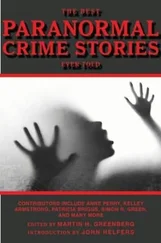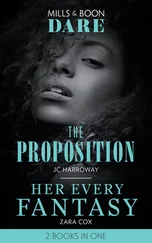Stan didn’t understand how Mandy would know his girlfriends for them to thank her, since he didn’t actually live on Long Island. Wasn’t he going to get to go home — back to his familiar school and shouting parents? Maybe if he got married one day there would be a wedding and everyone would come. Mandy might go up to his bride on his wedding day and say, “You better thank me for what I taught your husband, Stan, back before you even knew him, that summer he stayed at my house.” Anything was possible with Mandy, who smelled sour in a sort of good way and that was only the tip of the iceberg of how she was strange. He tried to imagine what the thing he touched looked like based on what it felt like but everything he thought of seemed insane. It made no sense for anything like what he was thinking to be a thing that was a part of a person.
So he asked if he could see it. She said she’d show him, but that if she did he had to kiss it. He didn’t want to do that so he never saw. She got angry and called him some things that he didn’t know what they all were — but he got the gist anyway, and some of them he did know — and she stomped up the stairs. He stayed behind the pool table and cried and felt bad about everything, like what had just happened and Mandy being angry with him but also how he missed the predictable madness of his fucked-up parents and also news headlines that scared him and other stuff, too, vague huge stuff, because it had gotten to the point where it really was everything at once.
As he calmed down he began to hear the TV again. It had been on the whole time but he’d tuned it out for a while. It was reentering his life like a shuttle back from space. They were doing a special on a rock star who had killed himself in the spring. There was some footage of a crowd gathered in what looked like a park, and then they played a song by the rock star’s group. The dead person was the singer, and he dressed, Stan saw, sort of like Mandy. Distortion churned from the amplifiers. It was aggressive, messy music, but weirdly catchy — like someone had taken a Beatles tune and transcribed it for chainsaw orchestra. Stan thought that the rock star screaming was the most pure sound he had ever heard.
When Stan was seventeen he dressed like Mandy had when she was fifteen. Now Mandy had short spiky shock-white hair and raver pants. She was in college and had a gruff doughy girlfriend. Charles and Aunt Lisa had gotten serious, but never married, and in August Charles had died of a brain aneurysm. Now it was the High Holidays. Stan was staying in the basement. Same old couch, but a new TV. His parents were upstairs, in his mom’s old bedroom. Aunt Lisa wasn’t much on synagogue. “I’m spiritual, but not religious,” she’d always say, with cautious certainty, as if coming to the realization for the first time. But this year she fasted and even stayed at ser vices through Yizkor.
They all broke the fast together at sunset and then the older folks went to bed, so Stan, Mandy, the bullish girlfriend, and Jeff — Charles’s son from a previous marriage, who Aunt Lisa had insisted join them for dinner — decided to go down the road and have a drink at the Hi-Tone, where nobody ever got carded. “I think I started coming here, like, the school year right after that summer you stayed with us, Stan,” Mandy said to her cousin. “If anyone else says they’re sorry,” Jeff said. They were a few rounds in. “I mean, it’s not like I don’t believe them, I mean of course they are, but how much can you take, you know?” He seemed to be waiting for one of them to answer him. When they didn’t, he said he was going out front for a smoke and the girlfriend asked if she could bum one and went with him. Mandy and Stan sipped their beers.
“I am sorry, you know,” Mandy said to Stan after a while, “about.” Then she didn’t say anything. She looked up at the front door. But then she looked back at Stan. She said, “I mean it was kid stuff. Stupid.”
Stan didn’t know what he wanted to say, or what he was going to say, though he knew he was about to say something. The truth was he hardly ever thought about the summer he had spent playing touch with his punky cousin. He was older now than she’d been then. He’d slept with a few of the girls and one of the boys at his high school and was mostly happy. His grades were nothing special, but then neither was he.
“Is Darcey a heavy sleeper?” he asked her. Darcey was the girlfriend. He thought about the words he’d just said. He thought to himself: that’s what I just said.
She said nothing, only stared ahead. Was she mad? Had she even been listening? He didn’t like her staring like this. He touched her leg under the table: the knee and then the fullness of the thigh, then his hand was floating in space and that meant she had either jerked away or opened for him, he didn’t know. He finished his beer in one long pull, then stood up. He had gotten tall. He fished a couple quarters from his pocket, went over to the jukebox and punched in the number for his favorite song of all time, which he supposed she’d recognize. He couldn’t decide if he was changing the subject, making some grand statement about it, or just doing whatever he wanted. He went up to the bar and ordered fresh drinks for everyone. The other two would be back any minute. It was a cheap place but that hardly mattered. His parents had gotten their shit together and he could have sprung for that round of drinks if it’d cost twice, three times what it did.
It wasn’t his play on the jukebox yet, but all he had to do was wait. All he could do was wait. When he heard the opening chords — certainly, at the latest, by the bridge — knowledge would rise up inside like water seeping into a basement or an unfurling rose — or better yet, it would arrive in his mind fully formed, ex nihilo, like how when somebody calls you with the bad news your first thought is always “I already knew that, I have always known.” The words a lie at the moment you first think them, they immediately become true and stay true forever, just like the lyrics to any song.
Iwas a few months shy of eighteen when Ma got religion. Hard to say what changed for her, exactly. I used to blame her father’s death for it, on account of how devout he was his whole life, and raised her himself. She took his passing about as hard as a person can. But I don’t know that I ever totally believed that explanation, even though I was the one who made it up. Maybe what makes more sense to say is I never believed it was the full reason, and that what I really think is this: sometimes deep down in a person is a switch waiting to be flipped, and nobody knows it’s there, not even the person, until one day — flip. And whatever light that switch controls pops on, starts to shine.
It was church every Sunday, all of a sudden, and some weeknights. Socials. Bible study. Whatever there was to do down at the church Ma meant to do it and have us all alongside her. The God stick whacked her so hard it seemed to have shook her brains loose, and I took to thinking of this as her “condition.”
First it was the Baptists, which was bad enough, but that romance proved short-lived. Ma joined the Assembly, and not one of us — Dad, Kyra, nor myself — was prepared to follow her there. So she let it be known that anyone who failed to join her in prayer would like as not fail to join her up in Heaven, and could hardly step out to the Walgreens, much less the church itself, without shouting up from the bottom of the staircase about how it might be the last time we ever beheld the countenance of one another forever.
Dad left a note that said we could reach him down at his brother’s in Corpus Christi if we needed to, and that he’d send some money when he could, but the gist was good-bye and good luck. “You’re old enough to understand this,” said a part of the note that was addressed to me. I still don’t know whether I think that’s so.
Читать дальше












